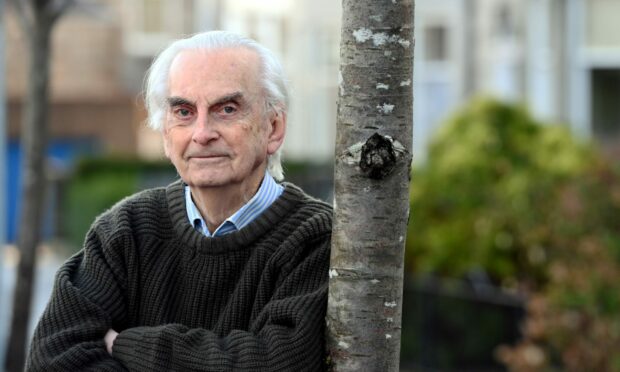Sir, – Hugh Pennington (Press and Journal, December 17) suggests that the people waiting for their Covid vaccine boosters outside St Thomas’s Hospital in London were not aware that they were close to the place where human coronaviruses were first discovered in 1966 by the Scottish scientist the late June Almeida.
He did not tell us that he had qualified in medicine himself at St Thomas’s Hospital and subsequently trained as a virologist in June Almeida’s department. He worked with her and witnessed her early discoveries regarding this previously unknown group of evolving pathogens.
He later worked for 10 years as a research member of staff at the Glasgow Institute of Virology and was then appointed as professor of microbiology at Aberdeen University.
His published works cover many species of pathogenic organisms. His book Molecular Virology has been translated into five languages.
Why, then, when Covid-19 was spreading rapidly in early 2020 were his warnings that it was “a potential super spreader in care homes” ignored?
His advice had already been broadcast during two editions of BBC Any Questions (March 6 and April 15 2020) and also delivered in an address to the Holyrood Covid-19 committee on April 28 2020.
If Professor Pennington’s wise counsel had been heeded, many thousands of hospital patients, already infected with Covid-19, would not have been transferred to care homes with tragic results that have been well documented.
It has recently been published elsewhere that our first minister and our health minister at the time have both admitted that “mistakes were made” .
Dr Alison Innes, Lang Stracht, Alford, Aberdeenshire.
Diaspora legacy of top teacher
Sir, – I am currently researching the influence of teachers on the remarkable success of the many Scots who went abroad from the Strathspey area.
One of those was John Macpherson who came from Tomachlaggan in A’anside but who taught for 30 years in Dufftown.
William Barclay in his account of “Schools and Schoolmasters” mentions Field Marshal Sir Donald Martin Stewart, Lord Mountstephen, Sir James Cantlie, Lt Col Keir RAMC, Dr Macdonell, New Zealand, Mr Macdonell, Indian Civil Service, Robert Scott M A and James Scott MA New Zealand as some of his most successful pupils. The first three on this list are easily indentifiable but I should be most grateful for any information about the careers of the others and their origins in Dufftown or about any others who either emigrated or sojourned abroad including his own wife and descendants if John actually married.
Eileen Stewart, Grantown on Spey, scotsawa2020@btinternet.com
Views on Norway’s oil and gas policies
Sir, – I refer to the letter from Allan Sutherland headed “Governing class stands up for sense” (Press and Journal, December 17) which suggested that Nicola Sturgeon should
look at how Norway is managing its “just transition” to net-zero by licensing new oil and gas fields and how he would like to live in a country whose “governing class doesn’t cave into the likes of Harvie, Thunberg and Sturgeon”.
As a Norwegian citizen I am pleased that Norway has no “governing class” unlike the current UK Government which is dominated by an elite with responsibility for the UK’s energy policy.
There are many Norwegians who oppose their coalition government’s policies in relation to new oil and gas extraction. In fact Norwegian environmental groups have taken the Norwegian government to the European Court of Human Rights and wants the court to rule that a 2016 decision to grant oil exploration licences in the Barents Sea violates Article 112 of Norway’s constitution which guarantees the right to a healthy environment. The case follows a recent decision by the Dutch supreme court to order Royal Dutch Shell to cut its global carbon emissions by 45% from 2019 levels by the end of 2030 in a landmark case brought by Friends of the Earth International.
So many Norwegians and activists around the world do not accept that policies to extract new oil and gas “stands for common sense”.
Tor Justad, Ord Terrace, Strathpeffer, Ross-shire.
